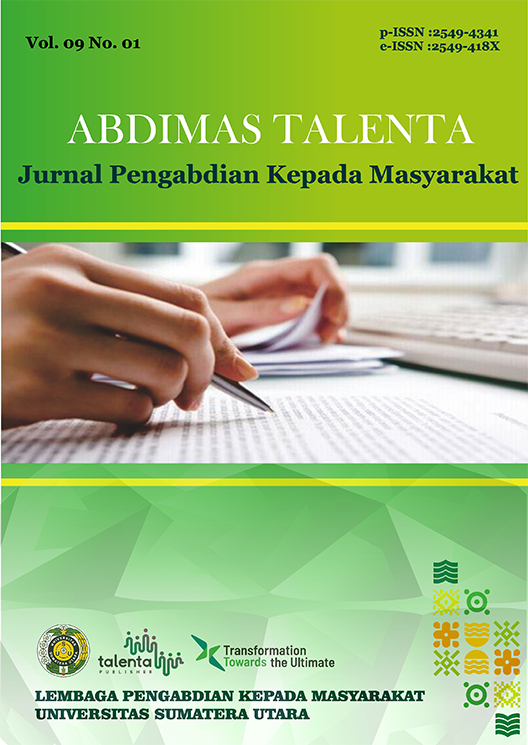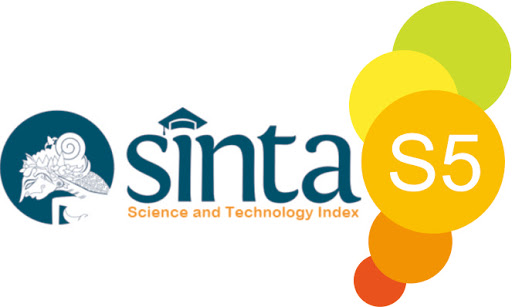Making Biocarno Fertilizer from Marine Organic Waste to Increase the Income of the Abadi Fisherman Farmer Group in Kuala Indah Village
DOI:
https://doi.org/10.32734/abdimastalenta.v9i1.14034Keywords:
Biocarno Fertilizer, Marine Organic Waste, Kuala Indah VillageAbstract
Management of marine organic waste can also be used as a solution to reduce marine waste and prevent global warming considering that the sea has many roles in supporting the life of living creatures and maintaining the ecosystem. The organic fertilizer that will be produced will be called "Biocarno Fertilizer" with good quality. The aim of this activity is to form or develop the Abadi Fishermen Farmer Group which is economically and socially independent, helps create peace and comfort in social life, and increases the skills and income of Farmer Group members in producing Biocarno Fertilizer independently. The result of this activity is the completion of community service in the form of counseling and outreach carried out by the service team to partner farmer groups, namely making Biocarno fertilizer by mixing several raw materials such as marine organic waste, cow dung, rice straw, Azolla, EM4 and molasses as a bioactivator. composting process. The next planned stage that must be carried out is to monitor and evaluate the progress of compost maturation over the next month, then samples of the mature compost will be taken to be taken to the laboratory for nutrient analysis so that farmers can modify the compost raw materials to produce quality compost according to the standards determined by SNI 19-7030-2004.
Downloads
Downloads
Published
Issue
Section
License
Copyright (c) 2024 ABDIMAS TALENTA: Jurnal Pengabdian Kepada Masyarakat

This work is licensed under a Creative Commons Attribution-ShareAlike 4.0 International License.
The Authors submitting a manuscript do so on the understanding that if accepted for publication, copyright of the article shall be assigned to Jurnal Abdimas TALENTA as well as TALENTA Publisher Universitas Sumatera Utara as the publisher of the journal.
Copyright encompasses exclusive rights to reproduce and deliver the article in all forms and media. The reproduction of any part of this journal, its storage in databases and its transmission by any form or media, will be allowed only with written permission from Jurnal Abdimas TALENTA.
The Copyright Transfer Form can be downloaded here.
The copyright form should be signed originally and sent to the Editorial Office in the form of original mail or scanned document.












